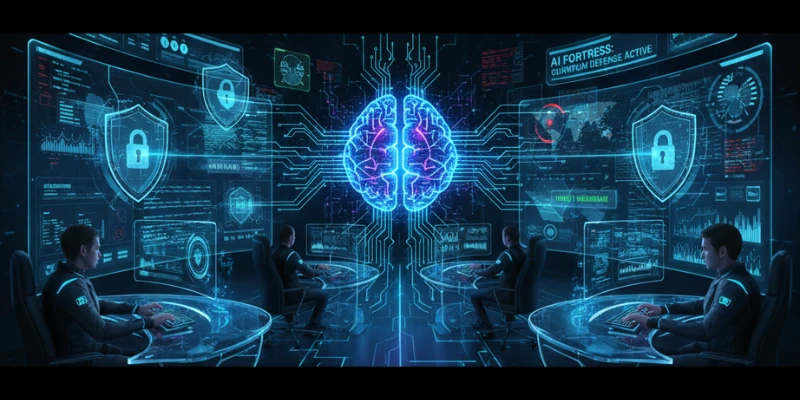The rise of Artificial Intelligence (AI) has reshaped industries, but one area where its impact is most profound is in digital protection. Cyber threats are evolving faster than ever, and traditional defense methods often struggle to keep up. By combining smart algorithms with advanced detection systems, AI is helping organizations safeguard their data more effectively. For learners, Artificial Intelligence Course in Erode at FITA Academy opens the door to understanding how these technologies integrate with cyber security strategies, preparing them for careers at the intersection of technology and defense.
The Growing Need for Smarter Defenses
Cybercrime is no longer limited to isolated breaches; it has become a global challenge affecting governments, businesses, and individuals. With hackers using automated tools, phishing schemes, and complex malware, manual detection is insufficient. AI introduces predictive models that can scan massive datasets, identify anomalies, and act before attacks occur. This proactive approach strengthens digital defenses, ensuring systems remain resilient against both known and unknown threats.
AI-Powered Threat Detection
One of the most powerful contributions of AI to cyber security lies in real-time threat detection. Traditional systems often rely on predefined rules, which means they struggle to stop zero-day attacks. AI, on the other hand, learns patterns of normal behavior and flags suspicious activity instantly. For example, an unusual login location or irregular data transfer can trigger an alert, allowing quick responses before damage occurs. With guidance from the Cyber Security Course in Trichy, learners understand how these tools are integrated into organizational frameworks, ensuring they can contribute to building secure infrastructures.
Automating Incident Response
Responding to a cyberattack requires speed, and AI enhances this process by automating repetitive security tasks. From quarantining suspicious files to blocking malicious IP addresses, AI-powered systems can react in seconds far faster than human teams. Automation not only reduces the burden on security professionals but also minimizes the time attackers have to exploit vulnerabilities. This integration of automation with human expertise creates a strong shield against ever-growing cyber risks.
Predictive Capabilities and Risk Management
AI is not just reactive; it is predictive. Machine learning models analyze historical data to forecast potential attack vectors. Organizations can identify weak points in their networks before attackers exploit them, making risk management far more effective. Predictive analytics also help businesses plan resources, improve compliance, and strengthen overall governance. Professionals who combine AI skills with an understanding of risk frameworks gain a strong career edge in this rapidly evolving domain.
Enhancing Human Decision-Making
While AI systems are powerful, they are not replacements for human judgment. Instead, they amplify decision-making by providing faster insights and accurate analysis. Security teams can prioritize the most critical threats, avoid false alarms, and dedicate energy to solving complex problems. By combining technical expertise with strategic thinking, professionals in this field are shaping a smarter and more secure digital future. Focused learning and practical exposure help learners understand how to apply these tools effectively in real-world scenarios, ensuring they are ready to meet industry demands.
Cyber Security in the Age of AI
The introduction of AI has changed how cyber security operates on every level. From endpoint protection to network monitoring and cloud security, AI-driven tools are now central to protecting sensitive systems. This means that modern professionals need a dual understanding of both domains. With practical exposure gained through Cyber Security Course in Erode, learners can master the defensive strategies required today, while preparing for tomorrow’s AI-powered security challenges.
Challenges and Ethical Considerations
Despite its advantages, AI in cyber security comes with challenges. Attackers are also adopting AI tools, creating an arms race between defenders and hackers. Moreover, reliance on AI raises questions about data privacy, algorithmic bias, and accountability. Addressing these concerns requires professionals to balance innovation with ethics, ensuring AI is used responsibly in safeguarding digital environments.
Building a Future-Ready Workforce
Artificial Intelligence has transformed cyber security from being reactive to becoming predictive, automated, and data-driven. Professionals who master both areas gain the skills to combat advanced threats while contributing to safer digital ecosystems. By following structured pathways Artificial Intelligence Course in Trichy, learners can confidently position themselves at the forefront of technological innovation, equipped to tackle the complex challenges of a digital-first world.
Also Check: Why Artificial Intelligence Is Important for Businesses Today?


